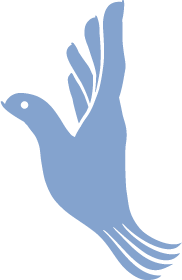Fundraising for the Re-evaluation Foundation

All Co-Counselors are encouraged to raise funds in support of the projects of the Re-evaluation Foundation–thank you for your interest and efforts! The Foundation exists “to help disseminate the ideas, skills, and leadership training of RC to people whose access to RC is limited by low income, geographic location, or other restrictive circumstances.”
All fundraising must be done in accordance with the Fundraising Guidelines.
Our first major fundraising project was to send a United to End Racism (UER) delegation to the World Conference Against Racism in Durban in 2001. We were very successful. We raised enough money to send 55 RCers to Durban and seed new RC communities in eight countries. Since then we have raised funds for many of RC’s “going public” projects, such as UER projects (including UER at the Social Forums), Tule Lake Pilgrimages, No Limits for Women (Beijing Plus 20), and Sustaining All Life (COP 21, COP22 in Morocco, and each of the subsequent COPs).
Successful Fundraising Examples for “Going Public” Projects
The majority of the money raised for the Re-evaluation Foundation has been through direct solicitation. We have done this primarily by sending personal letters to friends, family, and co-workers, describing our project and asking for a contribution. This can be an excellent opportunity to talk to your friends and family about RC and about the specific topic. You can make the individual solicitation through a letter or personal contact. Check out these sample letters for examples of what people have used in the past.
We have also raised considerable sums of money by holding wide world events at which we talk about the specific “going public” project, the basic theory and practice of RC, and ask for donations. Examples of some of these activities have included:
- Evening or day-long going public workshops (or series of workshops) on different topics relevant to the project
- A conference on the topic sponsored by one or more RC communities (possibly in collaboration with other wide-world organizations working on the topic)
- Fundraising house parties (see the Fundraising House Party Kit)
- Listening projects, tables at wide-world events: rallies, marches, etc.
- Garage sales or bake sales (donations from Community members) that also offered our t-shirts, posters, pins, for sale and had some introductory literature available
- Concerts by local musicians who are committed to our projects and who donated their performances
- Art fundraisers, with donations from local RC artists
- Informal in-home dinners or house parties for friends serving food, or potlucks where people brought dishes that reflect their cultural heritage and listened to a presentation about RC and the project
- Block parties (similar to house parties), family nights, game nights, talent shows, cultural-sharing, etc, used as an opportunity to communicate about the project and RC theory
These events included various combinations of talks about the specific project and RC, mini-sessions, showing clips of RC videos, cultural heritage sharing, and sales of pamphlets, audio/videos, posters, pins, and UER t-shirts.
For any fundraising event organizers need to figure out how much money to charge in order to cover basic expenses of running the event and to raise money. It is possible to either set a flat fee or use a sliding scale, with a minimum amount high enough to cover costs and raise money.
Fundraising activities have been most successful when they are carried out by a group of Co-Counselors that formed for that purpose, with a designated leader and specifically defined goals and strategies. It has been important that they use the group to discharge on their own distresses about money, going public with RC, classism and internalized oppression, and on building personal relationships as well as on directly soliciting money.
These “going public” fundraising activities go better when we remember to keep the focus on building personal relationships. It helps to work on our money distresses in sessions, support groups, workshops, and to work on any embarrassment or other feelings that get in the way of our presenting RC theory in a relaxed, confident, natural way.
Fundraising Activities NOT TO ENGAGE IN:
- Asking RC leaders to donate their fees, or increasing the cost of any RC event with part of the proceeds going to fundraising (any RC Community member is, of course, welcome to donate to the Re-evaluation Foundation)
- Auctions of services donated by Co-Counselors, where tickets are sold within the RC community
- Selling t-shirts or other items at RC classes or workshops, other than the UER and Sustaining All Life items produced in Seattle.

